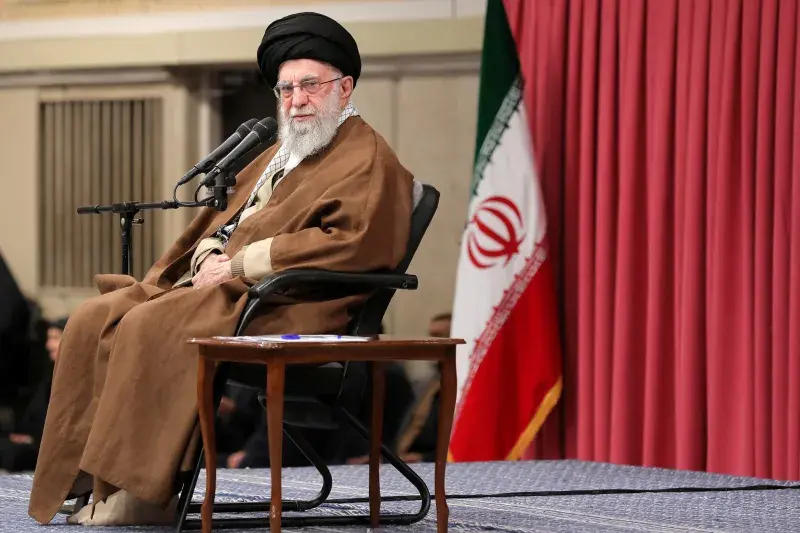
Newsweek
Jan 22, 2025
Iran's Khamenei Halts Nuclear Weapons Program in Olive Branch to Trump
By Maya Mehrara
Iranian Supreme Leader Ayatollah Ali Khamenei has reportedly prohibited the development of nuclear weapons, in a move that some are perceiving as an attempt to initiate talks with the Trump administration about easing sanctions.
The head of Iran's "Armed Forces Judiciary" made the announcement on January 21, according to Iran International. That was just one day after Trump's inauguration, but the possible olive branch does not necessarily mean that nuclear activity will stop.
Newsweek reached out to the Iranian mission to the United Nations and the Trump transition team for comment via email outside of normal business hours.
Why It Matters
Iran's halting of its development of nuclear weapons indicates that its economic issues as a result of Western sanctions have become a priority, and the regime may be willing to negotiate with the U.S. and other nations to help it recover financially.
It also suggests that the Islamic regime may be adopting a new approach with the new Trump administration.
What to Know
Speaking in Tehran, Ahmadreza Pourkhaghan, the head of Armed Forces Judiciary, said: "The late Imam Khomeini did not allow the use of chemical weapons or any illegal and unconventional weapons, even against enemy forces" and therefore "it is based on this doctrine that the Supreme Leader does not permit the armed forces of the Islamic Republic to develop nuclear weapons."
Some believe that this is an effort to initiate talks with the U.S. on easing sanctions, as an Iranian official said they were ready to begin talks on Tuesday. Iran has recently held discussions about its nuclear program with France, the U.K. and Germany in Switzerland.
Khamenei's announcement follows rising concerns from the United Nations' International Atomic Energy Agency (IAEA) that Tehran was ramping up its nuclear program and accelerating its enrichment of uranium in early December 2024. Iran's uranium was enriched to 60 percent, close to bomb-grade, although the country has repeatedly denied allegations about its nuclear activity.
The U.S. has recently imposed additional sanctions on Iran, targeting its shadow fleet, as well as individuals in Tehran accused of orchestrating disinformation campaigns targeting American voters ahead of the election.
Trump's first term in the Oval Office saw sanctions imposed on Iran following the U.S.' 2018 exit from the Iran nuclear deal, known as the Joint Comprehensive Plan of Action.
The president's return to office may see further sanctions implemented, as Trump and members of his administration have discussed bringing back the "maximum pressure" campaign in order to halt Iran's ability to produce nuclear weapons.
What People Are Saying
Speaking to reporters on Tuesday, Kazem Gharibabadi, Iran's deputy foreign minister for international and legal affairs, said: "We have always been prepared for negotiations, and if the other parties share this readiness, talks will proceed and yield results. However, if their policies change, Iran will adjust its approach accordingly.
"Sanctions impact people's lives in any targeted country, but they have not achieved their goal of forcing changes in Iran. The logical path is to return to proper dialogue and lift sanctions."
Iranian president Masoud Pezeshkian recently said to Britain's new ambassador to Tehran: "The Islamic Republic has absolutely no intention of utilizing its nuclear capabilities for military purposes based on its ideological beliefs and a fatwa by Supreme Leader Ali Khamenei."
What Happens Next
It remains to be seen if the Trump administration and the Iranian regime will initiate talks to ease sanctions.
